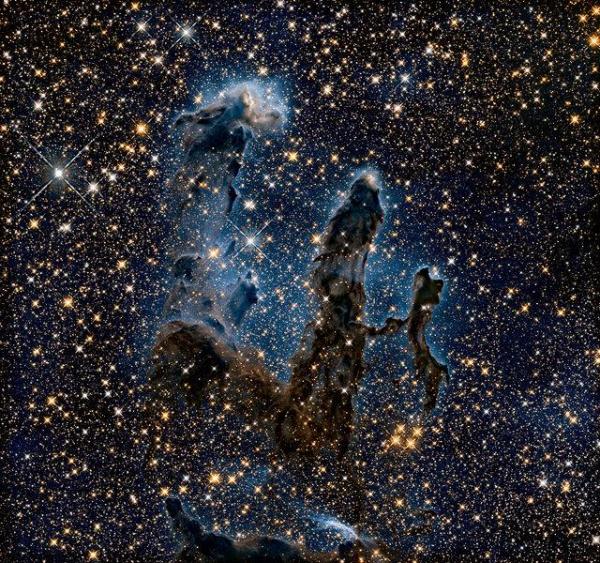Ornette Coleman RIP
 Gibbo
124 Posts
Gibbo
124 Posts
First I hear about Christopher Lee and now Ornette. Not a good day for legends. This man's music means so much to me. Considering his impact on music you would be forgiven for thinking he was immortal. But I guess through his music in a way he is...
http://www.nytimes.com/2015/06/12/arts/music/ornette-coleman-jazz-saxophonist-dies-at-85-obituary.html?partner=rss&emc=rss&smid=nytimesarts&_r=0
http://www.nytimes.com/2015/06/12/arts/music/ornette-coleman-jazz-saxophonist-dies-at-85-obituary.html?partner=rss&emc=rss&smid=nytimesarts&_r=0

Comments
Glad I got to see him perform.
I also am not a fan of Out Jazz. But he has some very assessable stuff.
The Jackson Pollack one. And that 80s stuff.
This is what I heard Charlie Haden say on the radio. He was playing in west coast jazz groups and sometimes one part, one line, would be so beautiful he would want to play it over and over. But he couldn't because he had to keep time and make the changes. Ornette told him don't worry about rhythm/time, melody/chords, play what you feel.
Any musician can do that, but only a few can do it with other musicians and still have good music as the end result.
Created his art on his own terms and had a huge impact on 20th century music.
this is a huge loss.
Created his art on his own terms and had a huge impact on 20th century music.
this is a huge loss.
highly recommend this film
yes.
i love "Dancing in Your Head" & "Body Meta" (i guess neither of those are technically credited to "Prime Time," but it's the same band, pretty sure?)
"Of Human Feelings" is actually pretty funky
wicked, thanks
Certainly a big influence on the Sun City Girls.
if you are in the NYC area please check 89.9 wkcr [colombia] is playing nothing but the man's music until weds I think
I was so surprised after years of hearing about him and harmelodics, but without hearing his music, to discover his music was so beautiful and accessible, not at all mad like I had thought it would be. And I enjoy free jazz. Shape Of Jazz To Come really blew me away and still does.
Seeing him a couple of years ago at The Barbican I was struck by Denardo's off-beat drumming. I need to hear the The Empty Foxhole, which is just Ornette and Charlie Haden with the 10-year-old Denardo.
This (from here http://www.slantmagazine.com/film/review/ornette-made-in-america) makes a lot of sense:
[strong]While Ayler's intuitive improvisations aimed for squealing unearthliness, Coleman's saxophone runs dared to acknowledge the rules they pranked. His flagrantly out-of-step anti-bebop, best represented on early 1960s tracks like "Beauty Is a Rare Thing" and "Peace," built an idioglossia out of well-timed technical deficiencies; these ostensible "errors," layered polyrhythmically, collapsed jazz backward toward its primitive, tribal roots. Coleman, then, didn't unshackle jazz so much as crack it open and squeeze the yolk (African swing rhythms), the white (Delta blues inflection), and the shell (bandstand instrumentation) through his fist.
[/strong]
And I enjoyed reading this article by Philip Clarke, about his meeting with him in 2007 (http://www.theguardian.com/music/2015/jun/11/harmolodics-and-ham-sandwiches-meeting-ornette-coleman):
[strong]I was determined to get to the bottom of what harmolodics actually was and, being a responsible journalist, had done my reading. But Coleman relished undoing my learning.
Someone had written that harmolodics was about allowing individual parts in an ensemble their independence. Was this right?
“The sound of your voice,” he retorted, “you think it makes you smarter or dumber?”
I was momentarily taken aback. “What a question!” I lobbed back.
“Well, just you think of someone playing I Got Rhythm in B rather than B flat. That’s just a change of clothes. But I can hear your words and you can hear mine and we’re talking ideas.”
I tried to digest Coleman’s thoughts at the same time as formulating an intelligent supplementary question. Harmolodics is a fusion of harmony and melody which purposefully trips up the same-old same-old stylistic boundaries, I suggested. Having attempted to meet Coleman on his terms, his next answer totally flawed me.
“Whatever you want to call it is your problem. To me sound just is. You can give sound a name, but that doesn’t mean the sound sounds like it.”
After more linguistic tennis, something began to rub off. Western music theory depends on certainty. Rules is rules. But Coleman was not into concrete, fixed ideas. Harmolodics was more like a faith system, a floating set of infinitely open-ended and adaptable things you could do, or not, that kept the field of improvisational play fresh. And as soon as they solidified into habit or routine, time to shift the theoretical goalposts.
“You want a sandwich?” Coleman asked out of nowhere, and the next thing I knew this jazz great was preparing me a ham and mozzarella roll. Then we wondered into his music room and sat me at the piano.
“You play?” he asked.
Yes I answered, and for 15, perhaps 20, magical seconds the talking was over, and I found myself answering the melodic patterns spewing from Coleman’s fingers.
“88 notes,” he tells me, “but only one sound and that is the sound of the piano, and I haven’t heard anyone describe what the sound of a piano is. Like bebop became a style – and stopped being a sound.”
And then it was over.
“Drop by anytime,” Coleman said as he guided me towards the door. And really I think he meant it.[/strong]